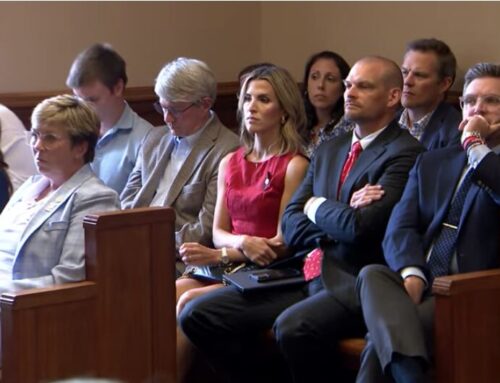Does the public have a right to see police incident reports?
A city editor called me recently, wanting to know what records his local police department was required to make public.
Seems like a simple question, but in Tennessee, it has become anything but that.
The city editor’s staff was dealing with a new public information officer at the police department who was declining to turn over some incident reports because of their sensitive nature. The newspaper had a good relationship with the police chief and knew his track record was to be as transparent as possible about crime in the community.
The city editor hopes the matter is now resolved, with the police chief’s guidance that incident reports should not be withheld. But it exposes a common friction when it comes to crime reporting in Tennessee – what information does the public have a right to know about crime in their community, and what latitude do police have to withhold certain details?
The answers have consequences for all of the media’s ability to report independently on crime and law enforcement – and a citizen’s ability to find out about crime in their neighborhood.
Inquiries related to access to law enforcement records have steadily grown in three years for the Office of Open Records Counsel.
Open Records Counsel Elisha Hodge logged 288 inquiries on the topic from March 2013 to February 2014. That compares with 249 the year before, and 171 the year before that.
The questions span topics – fees, access to reports and time frame for response.
When Hodge gets a question from a law enforcement agency about whether they are required to release incident reports to the public, she shares Attorney General opinions from 1980 and 1981, and tells them case law in Tennessee doesn’t directly address the confidentiality of incident reports, also called offense reports.
The Oct. 2, 1980 Attorney General opinion says “such reports are not ‘public records’ which must be made available to the public.” It cites an exception created by Tennessee Rule of Criminal Procedure 16(a)(2) that covers work product of law enforcement during an ongoing investigation or prosecution.
A followup Feb. 12, 1981 opinion said its earlier opinion “only applied to so-called ‘work product’; that is, documents created for internal use in the preparation of a prosecution or investigation.”
But because it didn’t specifically address offense reports, Hodge said the second opinion did not clear up the question.
“Do you have the right to access an offense report or incident report when there is a pending criminal action, which could include an investigation or prosecution? That’s the question. And in my opinion, that’s what’s not clear.”
Some police departments give out offense reports. Others don’t. There are some situations where offense reports should be redacted before being released to the public, Hodge said. For example, if a victim has a court order of protection, he or she can go to the law enforcement agency and ask them to not release identifying information.
Hodge also cited a 2002 case in Nashville where an appeals court found that identifying information of a juvenile victim of sexual assault should be redacted in fulfilling a public records request.
So where does that leave the public and local newsrooms?
When the waters are calm, everyone might row in the same direction.
But the fundamental issue remains. If the public reports a crime, and the police record that information – the basic who, what, when and where – in an offense report that starts the process of investigating, shouldn’t the who, what, when, where reported by the public be available to the public?
Shouldn’t the public know what crime is being reported in their community in a timely way – not after the case is over, sometimes years later? Don’t they have a right to unfiltered information that outlines the initial details and narrative reported to law enforcement?
If law enforcement gains ultimate discretion on all of the public records in its possession that might become information in an investigation or prosecution, the ability for a relevant and timely check on government power secured for citizens by the Tennessee Public Records Act becomes a charade.
Claiming the offense report is part of an investigation shuts the public out of basic information and unless noticed and challenged can contribute to a culture of unnecessary police secrecy.
Deborah Fisher is executive director of Tennessee Coalition for Open Government, a nonpartisan education and research organization dedicated to preserving and promoting open government. She answers questions for media and citizens regarding public records and open meetings. She can be reached at (615) 602-4080 or [email protected].
Note: Rule 16(a)(2) is also used to shield other information in police files during an investigation or prosecution, and is at the center of a judge’s recent ruling in an open records lawsuit against Davidson County. The ruling is under appeal.




